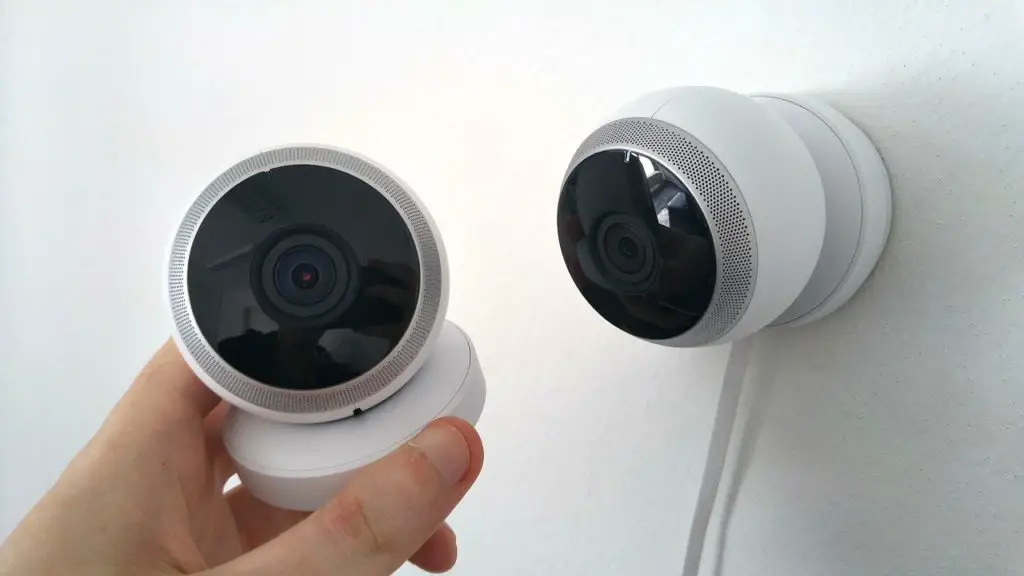NVR (Network Video Recorder) and DVR (Digital Video Recorder) are two popular types of video camera surveillance systems used by businesses today. Both have the same function of recording videos. However, they use different technologies to accomplish this purpose. Both have their pros and cons, as well as both being available from most professional security solutions providers such as upcomingsecurity.co.uk. It is important to understand the differences between the each type so that you can make the best choice based on your own individual requirements.
Here are the key differences between NVR and DVR systems that you should know before setting up your surveillance system.
Camera Features
One of the primary differences between the NVR and DVR recording systems is the type of camera used. An NVR recording system uses IP cameras, while DVR recorders work with analogue cameras. In NVR systems, the video is processed in the camera unit itself and then passed onto the recorder for storage. On the other hand, in a DVR system the raw video is passed on to the recorder, which then processes it and subsequently stores it.
Cables Used
DVR recorders use a traditional coaxial BNC type cable to connect the camera to the recorder. However, NVR systems use Ethernet cables for the same purpose, and this has many advantages. Ethernet cables are thin and flexible, unlike coaxial cables that are thick and rigid, which makes them difficult to handle, install, and connect.
Moreover, Ethernet cables can provide power to the cameras by themselves using PoE technology, whereas, in DVR systems, you need an additional cable to supply power to each camera. Extra hardware and connections will also be required to supply power to each camera.
Recorder Type
A DVR recorder is different from its NVR equivalent in that it houses dedicated hardware and software to process the incoming video signals from the camera. That’s because the camera doesn’t process the video in any way. Instead, it only passes the raw signal to the recorder. The chipset used in a DVR recorder for the purpose is known as an AD Encoder. However, in an NVR system, the camera itself includes video processing technology.
Only the processed signal is passed on to the recorder for storage. Hence, and NVR recorder doesn’t have any dedicated circuitry for processing the incoming signals. Another main difference between the two recorders is that the DVR recorder doesn’t supply power to the camera, and these need to be connected to separate power sources. However, an NVR recorder supplies power to the cameras through the ethernet cable itself.
Image Quality
DVR is not suitable for systems where the camera and the recorder are far apart, as the image quality deteriorates over longer distances. The quality of the cable used will also affect the signal quality. As NVR systems use IP cameras that act as components of a network, the image can be viewed from anywhere without any effect on the quality simply by accessing the network.
Audio Options
A standard DVR system does not have the ability to record audio. You can use a version with an additional RCA connector, but even so there will only be a limited number of audio ports available with the recorder. In contrast, an NVR recording system has an in-built capacity to record audio. Therefore, if you need to record audio as part of your surveillance system, NVR is your best choice.
Range of Use and Flexibility
NVR systems come as wired as well as wireless versions, which makes them a lot more flexible than traditional systems. Furthermore, since an NVR system relies on a network as its backbone, each camera doesn’t need to be physically connected to the recorder. It only needs to be a part of the network, and you’ll be able to view the video it records. It allows the video to be viewed from location by accessing the specific network. This is possible because the camera itself gives out a processed stream, unlike DVR signals that need to first be processed by the recorder.
Cost
Generally, a DVR system costs much less than an NVR one, because of the different levels of technologies involved. Therefore, for home use or basic setups, DVR is usually an adequate and cost-effective solution. However, for large businesses and organizations, an NVR system will be a better choice, given the high level of quality, the ease of installation and setup, and scalability.
Although both have their pros and cons, NVR recording systems have many advantages over DVR systems. Any organization that values advanced technology should consider NVR for its ease of setup, better connectivity, and enhanced security. However, if you only require video surveillance with limited scope, or there is an existing coaxial cable installation, a DVR system will be an appropriate and affordable solution.
